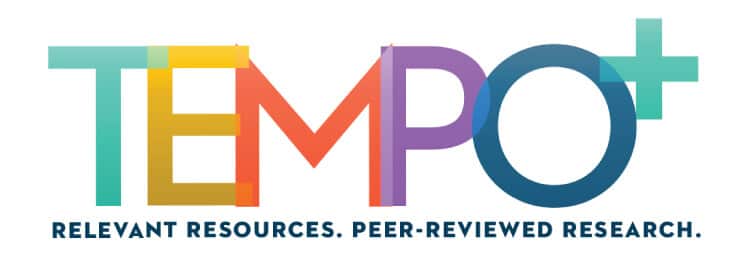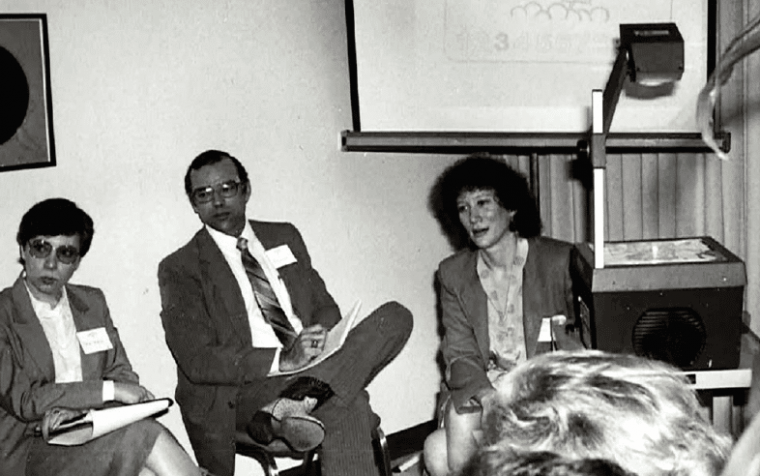It is no secret that the state of Texas is facing economic problems. Economic problems are, unfortunately, never isolated—they affect every area of state government. Cutbacks can be expected in road construction, state employment and, yes, in education. And whenever there are cutbacks in education, programs for gifted students invariably suffer.
The reason for this is that many of the myths regarding gifted education are still so prevalent. How many times have you, as parents or educators, heard others say, “Oh, those kids can take care of themselves,” “Gifted programs are just fun and games,” “Our only obligation is to make certain every child knows the basics.” It is important for us to do everything we can to dispel these myths so that others will begin to view the education of gifted students, not as an add-on program, but as a critical part of the educational continuum school districts should provide for their students.
This means that all of us must become educators. Some parents may, at first, feel a little uncomfortable in this role. Remember, however, that you were your child’s first teacher and you remain his or her most important one. Long after Ms. Jones or Mr. Smith have receded into memory, your child will look to you for advice and example. You have been providing answers and explanations for years now, and if we are to have school programs that meet your child’s needs, you must take your experience as teacher out of the home and use it in the school district and in the community.
And what do you say? There are a few basic ideas that I think may have been forgotten by some educators and legislators in their concern over the economy. We must do our best to highlight these concepts and remind people of their importance. In this issue of TEMPO, I will discuss two ideas that build on one another.
All children should not have the same education, but all children should have an appropriate education. Chapter 75 is the section in the Texas Education Code that defines the curriculum for Texas schools. The philosophy of the State Board of Education is included in this document and states, in part, “Public elementary and secondary education is responsible for providing each student with the development of personal knowledge, skill and competence to maximum capacity.” [Texas Education Code, Chapter 75.1 (a)]. The State Board did not say that elementary and secondary education was designed to get a certain test score or a certain achievement test ranking. It said maximum capacity. This statement clearly indicates that the State Board is expecting educators throughout Texas to develop programs that are designed to meet the needs of every student, whether they need a bilingual, compensatory, or gifted program. Each of these programs, and others like them, are designed to assist students in attaining their maximum capacity. Each should be equally supported by the local district educator and by the local representative.
Programs for gifted students should be planned around a kindergarten through grade 12 continuum and should have a curriculum that is differentiated to meet student needs. Many times, programs for gifted students are offered in grades 3 through 8. While districts should be commended for these efforts, they also should realize that students do not suddenly become gifted in the third grade. In fact, by that time, many gifted students who have not been appropriately served are underachievers because they have never been challenged to use or develop their skills. No student should have to wait on an appropriate education. Districts should be encouraged to start their programs as early as possible so that the child’s natural abilities can be strengthened and enriched. Neither does a child lose his/her giftedness in the eighth grade. Secondary school programs should be continuing the work that was done in elementary and middle school.
We would not tell a promising middle school quarterback that he had to make it on his own in high school. We would not put him in a class with teachers who had not been trained to work with him. We would not tell him to go out on the football field without proper equipment. We would not tell him to play on the junior varsity when we felt he could be a Friday night hero on the varsity team. This same attitude should prevail with our academically talented high school students. We should not be putting students who have been in gifted classes during their elementary and middle school years into a regular honors class. These students should have received training and skill development that makes their educational needs different from others. Courses should be designed to take advantage of the students’ past training and provide continuity in their educational development. Secondary school teachers should be trained in strategies that encourage maximum performance in gifted students. Appropriate books and materials should be available for these classes. None of this is special treatment—it is appropriate and adequate treatment.
Providing a kindergarten through grade 12 program is important, but, as indicated above, it must be carefully planned and coordinated. It will do no good for a district to provide a program for the gifted if the students are concentrating on language arts skills one year and math the next, or have units on mythology in grades 2, 3, and 4. Although based on the regular school program, the curriculum for the gifted program should be differentiated from that curriculum. “Differentiated” does not mean more of the same type of work, but rather work that expands and enriches what is offered in the regular program. This curriculum should provide in-depth content development, advanced process development, and complex product development. A scope and sequence should be apparent, with skills building on each other from one year to the next and with more sophisticated products being expected. The teacher of the gifted should see both how her instruction in the gifted class differs from her instruction in the regular classroom as well as how that instruction is building on last year’s lessons and is leading to next year’s. Without this kind of continuity, we just might be offering a program that is fun and games rather than one that has a justifiable scope and sequence of content, process, and product development.
These two points—that programs for the gifted are designed to meet the educational needs of students and that the programs themselves must have a planned scope and sequence—are the basis from which all other discussions emanate. If Mr. Smith tells you that gifted programs are fun and games, then he does not understand the first point. If Ms. Jones scoffs at you and says that the gifted program is just more of the same kind of work, and if Ms. Jones is right, then the district has not understood the second point. If Ms. Brown assures you that honors programs are adequate for gifted students, then she does not understand the second point.
It is our responsibility to see that we educate as many people as we can on the nature of gifted programs—on what they are and what they can do.
Evelyn “Evie” Hyatt served as President of TAGT in 1986 at which time she also provided leadership in gifted education as the Senior Director of Advanced Academic Studies at the Texas Education Agency (1979–2003). At TEA, Evie coordinated services for advanced and gifted students in Texas including gifted/talented education, Early College High Schools, International Baccalaureate, and Advanced Placement services. Since her work at the Texas Education Agency, Evie has served as Educational Consultant and President of Advanced Education, Deputy Assistant Commissioner of P-16 Initiatives for the Texas Higher Education Coordinating Board, and State Project Manager for AVID.






